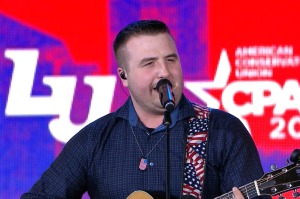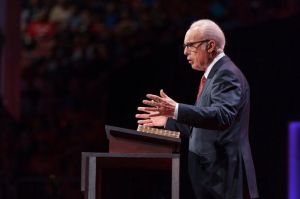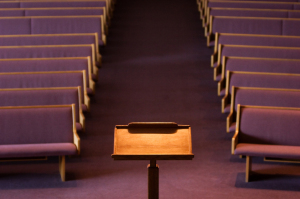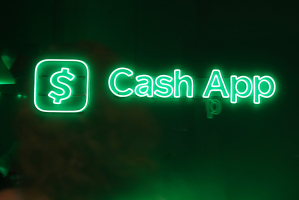Pope Names 31 Cardinals, Future Voters on Succession
VATICAN CITY — Pope John Paul II announced the selection of 31 new cardinals today, a move that significantly deepened his already profound influence over the elite group of Roman Catholic leaders who will choose his successor.
The announcement came months earlier than many Vatican officials had expected. To some of those officials, it suggested that the 83-year-old pope and his closest aides were increasingly worried about his health and wanted him to seize at least one more chance to mold the future of a church with an estimated one billion followers worldwide.
Even before today, John Paul had appointed more cardinals than any other pope, so that all but 5 of the 109 who are under 80 — and thus eligible to vote for the next pope — were elevated by him.
The percentage of voters elevated by John Paul will increase when the men whose selections were announced today formally receive their titles on Oct. 21, bringing the number of voters to more than 130.
"When the next pope is elected, we're going to see a lot more continuity than we are going to see change," said the Rev. Thomas J. Reese, an American Jesuit and the author of "Inside the Vatican," a book about its culture and politics.
"We're not going to see somebody get up and reject the legacy of John Paul II," Father Reese said. "The pope has done exactly what you or I would do if we were pope: he has appointed people who basically agree with him on the important issues."
That means church leaders who share his concern for poor people in the developing world, his insistence on inter-religious dialogue and his unwavering opposition to birth control, the ordination of women and an end to celibacy for priests.
The selections included one leader from the United States, Archbishop Justin Francis Rigali of Philadelphia.
The archbishop of Boston, Sean O'Malley, was not among those appointed today, although the leader of the archdiocese of Boston, like the leader of the archdiocese of Philadelphia, is typically a cardinal.
Most of the new cardinals come from Europe, but three are from Africa, three from Asia and three from Latin America. The church's reach to places like Vietnam, Nigeria, Ghana and India reflects its ambitions and growth in the developing world and in places that are not traditionally Catholic.
The list included only six Italians, a group whose numbers and influence in the College of Cardinals has diminished during the reign of John Paul, formerly the archbishop of Krakow, Poland. His election in 1978 marked the end of more than four centuries of Italian popes.
The pope announced the new cardinals and read the names of 30 of them from a window over St. Peter's Square around noon.
He did not give the name of the 31st cardinal-to-be, holding that man's identity "in pectore," or close to the heart. That usually signals that the man is in a country where Catholics are oppressed.
During John Paul's nearly 25-year-long papacy, the fourth longest in the history of the church, he has chosen new cardinals about every three years. But the announcement today followed the previous one, in January 2001, by a shorter span. That change reflected an unusual degree of drama preceding the announcement.
As recently as a month ago, many Vatican officials said they did not expect any new cardinals to be appointed until January. As recently as a week ago, there were no reports or even rumors to the contrary.
But in the last few days, a senior Vatican official said, it became clear that the pope was seriously considering — and that his aides were debating — whether he should select new cardinals now.
"There was concern about the pope's physical state," said the official, who spoke on condition of anonymity.
The pope suffers from Parkinson's disease and severe arthritis, among other ailments, and his afflictions seem to be taking an ever greater toll on him.
This month, during a four-day trip to Slovakia, he could not read some of his planned remarks and sermons, often garbling his words. He did not stand without assistance or walk.
On Wednesday, he skipped his usual weekly appearance before an audience at the Vatican, one of several changes to his schedule recently.
But there was also a logistical rationale for announcing new cardinals now, so that a consistory — the gilded ceremony at which the newly minted cardinals receive their signature red hats — could be held next month. The announcement of new cardinals usually precedes a consistory by about four weeks.
Cardinals from around the world attend consistories, and they are already scheduled to come here in late October for events surrounding the pope's 25th anniversary.
By bringing the number of potential voters in the conclave that chooses the next pope to more than 130, John Paul once again exceeded an ideal limit of 120 that one of his predecessors, Pope Paul VI, had set. John Paul had done this several times before.
Several dynamics influenced the choices that the pope announced today. Some of the cardinals-to-be are senior Vatican officials whose elevation to that rank lagged behind the importance of the jobs they were already doing. Some are longtime friends of the pope.
Vatican officials offered several possible explanations for the omission of Archbishop O'Malley, who took over in Boston two months ago, his charge being to heal a wounded archdiocese. Boston was at the center of the sex abuse scandal that shook the Catholic Church in the United States last year.
"The situation is still in a little bit of flux there, and the church there is not yet in a tranquil mode," a Vatican official said, trying to explain Archbishop O'Malley's absence from the list.
But it was also possible that the pope or his aides did not want Boston to have essentially two votes in a conclave. Cardinal Bernard Law, the former archbishop of Boston, is not yet 80.
By contrast, Cardinal Anthony J. Bevilacqua, the recently retired archbishop of Philadelphia, is already 80. In announcing Archbishop Rigali's elevation to cardinal, the pope was not giving Philadelphia two votes.




























